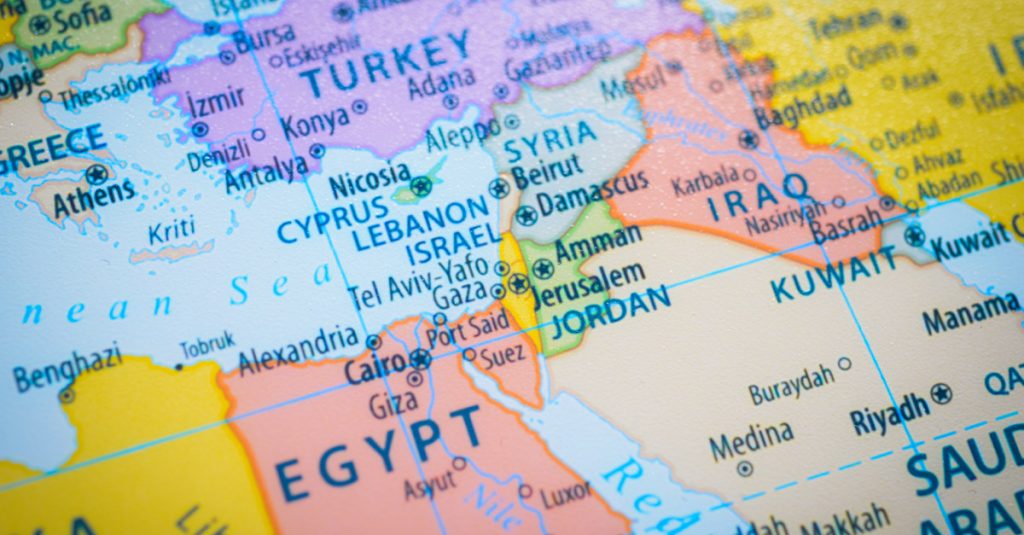Airlines are actively reassessing routes following Iran’s recent aggressive actions against Israel. With regional airspace temporarily closed, precautionary measures are vital.
The Foreign Office has quickly updated travel advisories for numerous countries, as the situation evolves rapidly.
Airlines Reroute and Suspend Flights
In response to recent tensions in the Middle East following Iran’s drone and missile strike on Israel, airlines are rapidly adjusting flight routes and schedules. Parts of the affected region experienced airspace closures, rapidly necessitating operational changes. The Foreign Office quickly updated its travel advisories for roughly 20 countries, reflecting the evolving situation.
EasyJet has temporarily halted flights to Tel Aviv, a decision underscored by their commitment to passenger safety. “Due to the current situation in Israel, we have made the decision to pause our operations to and from Tel Aviv,” the carrier stated. Similarly, British Airways, having resumed flights to Israel earlier in April, continues to monitor the situation while maintaining a cautious approach regarding future operations.
Impact on International Carriers
International airlines are also making significant changes. Qantas, for instance, has altered its nonstop Perth to London service, inserting a refuelling stop in Singapore, a strategic response aimed at ensuring the safety of its passengers while navigating through the crisis-affected airspace. The airline remains vigilant, advising customers to stay informed about their bookings as conditions fluctuate.
Lufthansa Group has taken proactive steps by temporarily suspending routes to Tel Aviv, Amman, and Erbil. The decision, influenced by security assessments, underscores the airline’s commitment to safety amidst the unrest. Ongoing evaluations are crucial as the geopolitical climate remains volatile.
Travel Advisories and Government Responses
The revised travel advisories disseminated by the Foreign, Commonwealth & Development Office (FCDO) emphasise heightened caution. The office acknowledges the unpredictability of the situation and advises travellers to consider departing Israel and the Occupied Palestinian Territories if their stay isn’t essential.
Government and defence officials are on high alert. The UK Ministry of Defence has repositioned Royal Air Force assets in response to perceived threats, aiming to mitigate risks. This action highlights a coordinated international effort to stabilise the region and reflects broader strategic goals to maintain peace and security across affected zones.
A Foreign Office spokesperson expressed strong denunciation of Iran’s actions, highlighting Britain’s concern over the situation’s potential escalation. This communication underpins the gravity of the situation and encourages diplomatic channels to de-escalate tensions.
Economic Ramifications
The attack’s ripple effects have extended to global markets with a noticeable surge in oil prices, nearing $100 a barrel. Financial markets are responding to the anticipated impact of further geopolitical instability, with traders closely watching reactions from Israel and other key players.
Such economic fluctuations are indicative of the broader economic uncertainties prompted by geopolitical conflicts. Stakeholders and investors are advised to remain vigilant as further developments unfold, as they could influence both short-term and long-term market outcomes.
Industry Reactions and Statements
Feedback from airlines and industry leaders reflects a shared concern over safety and operational stability. EasyJet and Qantas have publicly reiterated their prioritisation of customer and crew safety, while Lufthansa continues to align its operational strategies with external developments.
A Qantas representative expressed: “We’re temporarily adjusting the flight paths for our flights between Perth and London due to the situation in parts of the Middle East. We’ll reach out to customers directly if there’s any change to their booking.” The dynamic response highlights the industry’s agility in navigating emerging challenges.
Maintaining customer trust during such fluctuations is crucial. Airlines are working diligently to provide clear communication and alternative arrangements where necessary, demonstrating resilience amidst adversity.
Strategic Military Positioning
The UK’s strategic repositioning of its Royal Air Force units highlights the military dimension of the response. This move aims to intercept any potential threats and reinforce existing operational missions in the area.
Military analysts suggest this deployment could serve as a deterrent against further aggression, providing a buffer while diplomatic efforts are underway. The action reflects an understanding of the intricate balance between military readiness and diplomatic negotiation.
Ensuring regional stability while safeguarding national interests remains paramount. The ongoing adjustments underscore the complexity of addressing immediate threats while pursuing long-term peace initiatives.
Future Projections
As the situation develops, airlines and governmental bodies are likely to continue modifying policies and operations. Indicators suggest that cautious optimism may guide future engagements. This involves a balanced approach to international travel operations while prioritising safety and security.
In conclusion, this situation underscores the importance of adaptive strategies in both air travel operations and international diplomacy. Maintaining passenger safety and regional stability remains the highest priority.

